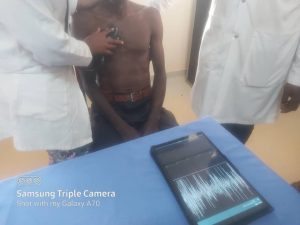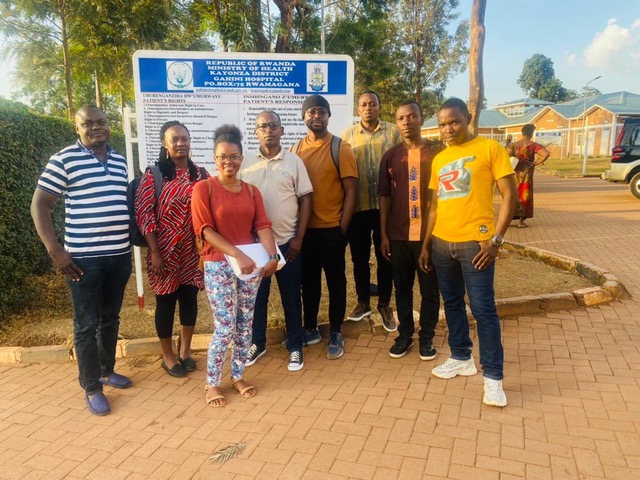In collaboration with Carnegie Mellon University Africa (CMU Africa), INESC TEC is collecting heart-related data in Rwanda, towards developing algorithms that allow – using multimodal auscultation – the screening of cardiovascular diseases related to rheumatic fever.
A team of INESC TEC researchers is working on the development of a solution that will allow the screening of cardiovascular diseases resulting from rheumatic fever, using Artificial Intelligence. How? By innovatively combining multimodal stethoscopes – which, in addition to auscultation, perform electrocardiograms – and deep learning techniques for processing and analysing heart sounds and electrocardiogram data, i.e., a multimodal deep learning technique.

“Interpreting heart auscultation data is highly challenging and requires years of training. Artificial Intelligence methods, in particular deep learning, have the potential to recognise disease patterns in heart sounds signals and electrocardiograms with great accuracy”, explained Francesco Renna. Moreover, the INESC TEC researcher emphasised “that the main advantage of using Artificial Intelligence in this context is the ability to make an accurate screening, without the intervention of a cardiology expert to interpret the data collected”.
Since information is crucial to train the machines, the team is currently collecting data that will act as the basis for the development of algorithms. In collaboration with CMU Africa, the group is collecting preliminary data and performing exploratory analyses to determine the potential of this technology in the African context – and Rwanda in particular. “Concerning machine learning algorithms, it is crucial to train the models with data that represent the different human phenotypes. This allows, on the one hand, to avoid bias, and, on the other hand, to increase the model’s representation ability”, said the researcher.
After the analysis of said information, the team will discuss it with healthcare partners to study the possibility of extracting data biomarkers from multimodal auscultation, namely those deeply connected to cardiovascular diseases related to rheumatic fever.
This work is part of a line of research by INESC TEC Centre for Biomedical Engineering Research (C-BER) called Multiscope; the initiative is led by Francesco Renna, and follows the Multiscope project, supported by INESC TEC’s funding programme dedicated to internal projects, called Internal Seed Projects. Multiscope aims to develop technologies for screening cardiovascular diseases, e.g., multimodal stethoscopes. “Multiscope’s technological innovation translates into the design and development of Artificial Intelligence algorithms that automate the screening of cardiovascular diseases from the data collected by the multimodal stethoscopes”, concluded Francesco Renna.
The researcher mentioned in this news piece is associated with INESC TEC and UP-FCUP



 News, current topics, curiosities and so much more about INESC TEC and its community!
News, current topics, curiosities and so much more about INESC TEC and its community!